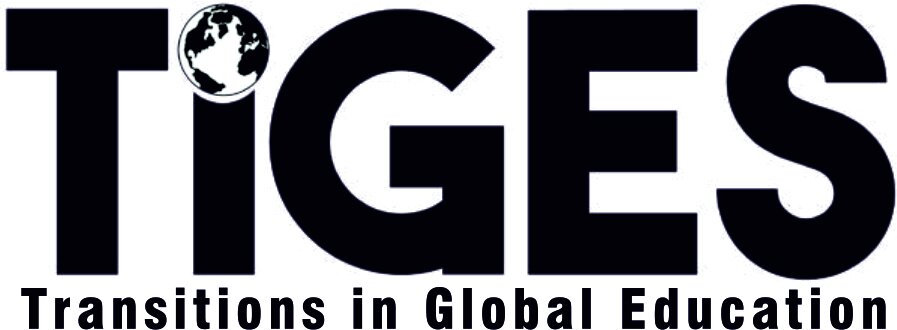Making Education Meaningful
Ishaan Kapoor is an undergraduate law student at Government Law College, Mumbai. He has worked with the indirect tax teams of the legal arms of KPMG, Pune and BMR Advisors, Gurgaon on the GST Act taking effect in India from 1st July, 2017. He also did a stint with the Supreme Court of India working apprentice to Senior Advocate-on-Record, Ms. Vibha Datta Makhija. Besides his legal career, Ishan is a business developer and has worked on multiple projects in the field of education in the last five years.
California, 2006, the TED Conference, an agglomeration of ideas, and a scintillating light that pierces through the lugubrious darkness of ignorance. It is here, that Robert Quillen would say, “Discussion is an exchange of knowledge, argument of obtuseness.” It is also here, that Sir Ken Robinson narrated a humorous anecdote which prompted me to don the chimerical thinking cap.
A group of 4 year old children organize a school play, a play based on the story of Jesus. The play commences with the three kings walking towards Jesus, to bestow upon him three gifts. The first “king” approaches Jesus, and says, “I bring you gold.” The second child presents Jesus with myrrh. The third child, who had some difficulty in pronouncing the word “frankincense”, goes up on stage, walks up to Jesus and says, “Frank sent this.” Hearing this, Sir Ken Robinson had an epiphany.
While the literacy rates and macro problems concerning Human Resource Development in India are one debate, this note builds upon this ideology of Sir Robinson’s and tries to dissect the degree of feasibility and meaning in the Indian Education system on a more operationally microscopic level. Every now and then, a phrase comes along that captures the imagination and spirit of the populace and policymakers across the nation alike. A decade ago, that phrase was Brand India, under the BJP government, it’s probably Digital India. This makes me wonder when a national event or likely institutional machinery failure would occur to bring about the phrase ‘Educate India’. This thought, caused me to also question whether the education module that is being followed by the institutions in India today is fundamentally viable.
Albert Einstein had once said that “often we see schools as a mere instrument of transferring a certain maximum quantity of knowledge to the growing generations”. This is a major enigma. It is essential that the school aims to constitute individuals that consider development of society as their primary motive and give a considerable amount of importance to altruism instead of marginalizing it. In his documentary – “Bring on the Education Revolution”, Sir Ken Robinson had asked a very thought provoking question – Do schools kill creativity? And after hours of introspect and retrospect and a deep reminiscence of my personal experiences, I came to the conclusion that “Yes, they do”. The fact, though not openly accepted, is that we live in a country where excellence is gauged by academic caliber, and where benchmark numbers are considered to be the only yardstick of success. India is a country where qualified and certified teachers take pride in drilling a sentence into students’ minds – “The textbook is your bible, stick to it”. To this, my heretic mind asked what would have seemed to be a perfectly legitimate question, why the intolerance to the atheists and agnostics? I believe that curiosity is the very basis of education. And if it is said that “curiosity killed the cat”, then I certainly believe that the cat died nobly. The great philosopher Voltaire had once said, “Judge a man by his questions, rather than judging him by his answers”.
However, an education module such as India’s is disallowing a student to question as it is weeding out the curiosity among students by encouraging the wrong skill. The skill of regurgitation. Another major problem that faces our primary and secondary education module in the today is the stigmatization of mistakes by teachers and educators. In my sixteen years as a student, I have been told umpteen numbers of times, that mistakes are wrong and unacceptable, and that the high- er grades I score, the likelier I am to scale the “mountain of success”. Why? Aren’t a man’s errors after all his portals of discovery? I am in no way claiming that being incorrect is being creative. But, history is a witness to the fact, that if we do not have the capacity to make mistakes, we also will not have the capacity to be creative. The lack of curiosity among students and the stigmatization of mistakes by educators have caused a log-jam on both sides – the learning, and the teaching. I feel that education is meaningful when it is unrestricted. Quenching a student’s thirst for knowledge or for that matter defining boundaries to his/her knowledge are for me equivalent to crimes committed by any educator. As a consequence, I vehemently advocate the idea of a student deciding the degree of his research work on any particular given topic himself. For the aforementioned to take place and for a student to develop a qualitative capacity to question, it is of great importance that educators nourish ambition among the students. Ambition in my opinion is a form of mental stimulus, without which any form of human cooperation is impossible. If a teacher can sow the seeds of ambition in a child at nascent stages, it will induce him to diligent work.
It would be fitting for me to conclude this essay by quoting the man who captivated the thoughts of Chicago and the rest of the world – Swami Vivekananda. In his famous 24-hour long speech, he had proclaimed that, “Education is the manifestation of perfection. The perfection that is already in man.”
